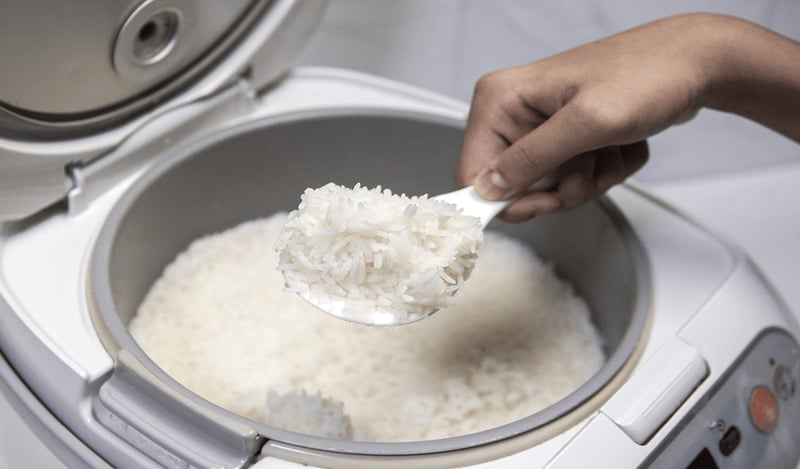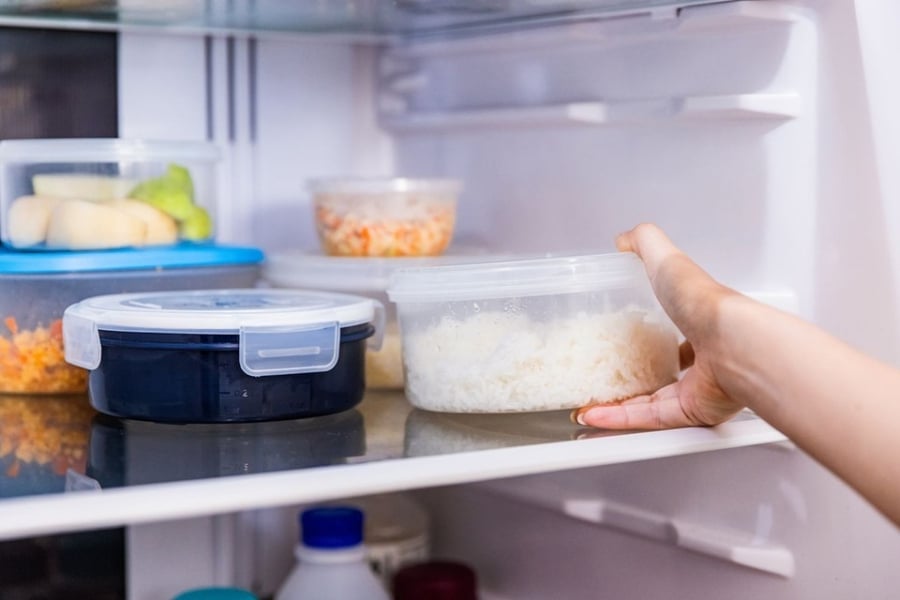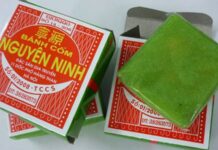Understanding why cooked rice is prone to spoilage is essential before delving into preservation tips. Rice, when cooked, contains a significant amount of moisture and starch, creating an ideal environment for bacterial and mold growth. Room temperature, especially during hot summer days, further accelerates this process. Additionally, improper storage methods, such as leaving the rice uncovered in the pot or exposing it to air for extended periods, can cause it to spoil rapidly and develop an unpleasant odor.
Preparation Steps
The key to maintaining the freshness of cooked rice lies in the immediate post-cooking preparation. Firstly, ensure that the rice cooker, containers, or any utensils that come into contact with the rice are clean and dry. Bacteria can easily thrive if the storage utensils are contaminated. After the rice is cooked, allow it to cool completely before storing it. Putting hot rice into a sealed container or refrigerator can lead to moisture buildup and may also affect the cooling equipment. A useful tip is to use a clean spoon or rice paddle to fluff the rice instead of handling it directly with your hands, as sweat or bacteria from your hands can cause the rice to spoil faster.

Room Temperature Storage Tips
In cases where a refrigerator is unavailable or if you only need to keep the rice for a few hours, storing it at room temperature requires some considerations. Firstly, keep the rice in a pot or container with a tight-fitting lid to minimize air exposure. An effective method is to place a clean, dry cloth over the surface of the rice before sealing the lid. The cloth will absorb excess moisture released by the rice, preventing it from becoming damp and susceptible to spoilage. Additionally, you can add a small amount of salt to the bottom of the pot before cooking the rice. Salt not only enhances the flavor but also possesses natural antibacterial properties, prolonging the shelf life.
Another trick employed by many homemakers is to use rice washing water. After rinsing the rice, retain a small amount of the starchy water and lightly spritz it onto the surface of the cooled rice before sealing the container. The rice washing water contains substances that can inhibit bacterial growth, helping the rice stay fresh for 6-8 hours, provided the temperature is not excessively high. However, it’s important not to leave the rice at room temperature for extended periods, especially during hot weather, as bacteria can still proliferate if the storage duration is prolonged.

Refrigerator Storage
The refrigerator is an ideal solution for prolonging the freshness of cooked rice. However, simply placing the rice in the fridge is not enough to ensure its quality. Firstly, portion the rice into small servings and store them in airtight containers made of plastic or glass. Dividing the rice into smaller portions allows for even cooling and facilitates easy retrieval without the need to reheat the entire batch. When transferring the rice to containers, press it gently to remove air pockets and inhibit bacterial growth.
An important note is to refrain from keeping the rice in the refrigerator for more than 24 hours, as even in a cold environment, bacteria can multiply if stored for an extended period. Upon removing the rice from the fridge, inspect it for any unusual odors or slimy surfaces. If any abnormalities are detected, discard the rice to prevent potential health risks. To reheat the rice, consider using a microwave or steam it to retain its softness and prevent dryness.
Natural Ingredients for Preservation
In addition to the aforementioned methods, certain natural ingredients readily available in your kitchen can aid in preserving the rice effectively. For instance, you can place a few slices of fresh ginger or green tea leaves into the rice cooker after cooking. Ginger and green tea possess natural antibacterial properties that help inhibit bacterial growth and maintain the rice’s aroma for longer. When using these ingredients, ensure they are clean and placed in a way that avoids direct contact with the rice to prevent altering its flavor.
Another approach is to utilize vinegar. Dilute vinegar with water in a 1:3 ratio, and then use a clean cloth to lightly dab the solution inside the rice cooker or container before adding the rice. Vinegar possesses antibacterial and deodorizing properties, preventing the rice from absorbing refrigerator odors or spoiling quickly. However, use only a small quantity to avoid imparting a vinegar taste to the rice.
Despite employing these tips, common mistakes can still lead to rice spoilage. Firstly, avoid storing rice near strongly-scented foods like fish or raw meat in the refrigerator, as rice readily absorbs odors, compromising its natural flavor. Secondly, refrain from leaving rice in iron or aluminum pots for extended periods, as these materials can cause the rice to undergo chemical changes and deteriorate. Lastly, maintain hand and utensil hygiene whenever handling rice, as even a small amount of bacteria can accelerate spoilage.
Free Up Space on Your Phone With a Single Tap: Get That New-Like Performance Back!
Over time, your phone’s memory can become clogged, leading to frustrating lag, slow responses, and even an inability to take photos or download apps. But fear not! With a simple trick up your sleeve, you can instantly free up space and get your phone running smoothly again. It’s a little-known technique that can work wonders for your device’s performance.
“Are You Washing Chicken the Wrong Way? You’re Not Alone.”
Introducing the Ultimate Guide to Safe Chicken Handling: Master the Art of Chicken Prep with Pro Tips to Avoid Health Hazards.
Learn the do’s and don’ts of chicken preparation to keep your family safe and healthy. Discover the secrets to perfect chicken every time with our easy-to-follow guide. It’s time to take your culinary skills to the next level and become a chicken prep master!





































